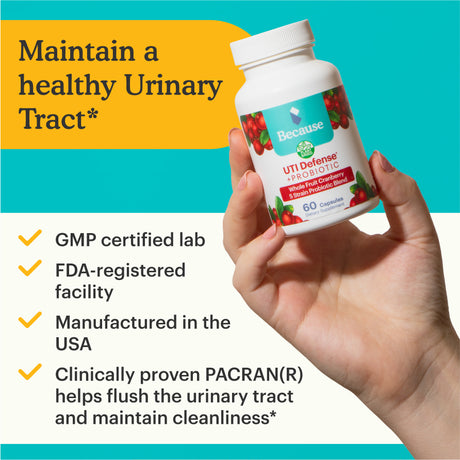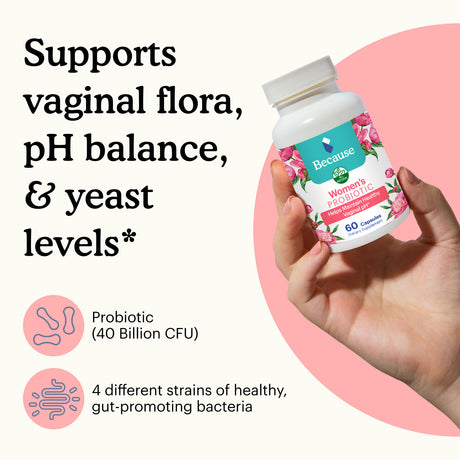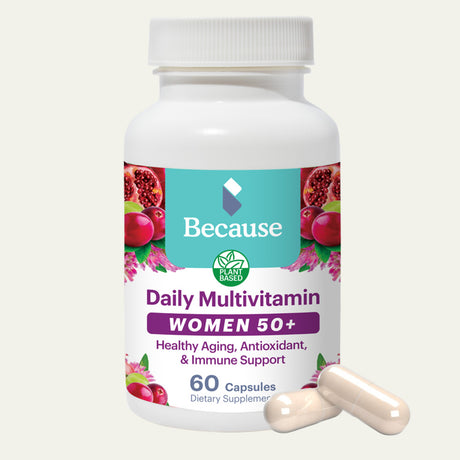Around 33 million adults in the U.S. have an overactive bladder. An estimated 30% of men and 40% of women have the condition. If you’re one of them, you know how the urinary problems associated with overactive bladder syndrome interfere with your daily life.
The good news is that prescription drugs, other treatments, and complementary interventions are available for managing an overactive bladder. Many people take pumpkin seeds or pumpkin seed oil for urinary incontinence. Read on to get the facts about using pumpkin seeds for urinary disorders like overactive bladder.
Causes and Symptoms of Overactive Bladder
Overactive bladder (OAB) is a urinary problem involving the following symptoms:
- Urinary urgency: People with OAB often get the urge to urinate suddenly. The need to go can be so strong that it results in bladder control issues.
- Urge incontinence: This form of incontinence happens when urine leaks after a strong urge to urinate.
- Frequent urination: Urinary frequency is one of the most common overactive bladder symptoms. If you have the condition, you likely need frequent trips to the bathroom.
- Nocturia: Nocturia is when you wake up at least twice at night to go to the bathroom. It can interfere with sleep and result in bedwetting.
Overactive bladder can have several causes, such as:
- Weakening of the pelvic floor muscles: Pregnancy and childbirth can stretch out the muscles that support the bladder. This condition can cause it to feel full even when it’s not. In many postmenopausal women, a lack of estrogen causes a loss of muscle tone in the pelvic area, leading to urinary symptoms.
- Nerve damage: In some cases, OAB occurs when problems arise with how the bladder sends the brain messages through the nervous system. Multiple Sclerosis, stroke, back injuries, radiation therapy, and other issues can damage nerves or cause them to malfunction. When this happens, the bladder may signal to the brain that it’s full even when it’s not.
- Enlarged prostate: Benign prostatic hyperplasia (aka prostate enlargement) can cause OAB in men. An inflamed prostate can put pressure on the bladder, causing it to feel full more quickly.
The Benefits of Pumpkin Seeds for Overactive Bladder and Incontinence

Pumpkin seed oil has long been a natural remedy for urinary health. Researchers are still working to understand pumpkin seeds' effects, but so far, recent studies suggest their oil benefits the urinary system.
For example, one study found that taking an extract from the pumpkin variety Cucurbita maxima significantly improved overactive bladder symptoms after 12 weeks. Although the researchers state that additional studies with a placebo group are necessary to confirm these findings, the results are promising.
There are a few reasons why using pumpkin seeds for an overactive bladder may lead to health benefits.
Regulation of Bladder Muscle Contractions
Pumpkin seed oil may reduce the muscle contractions that cause overactive bladder symptoms while promoting stronger pelvic floor muscles for long-term benefits. Pumpkin seeds contain natural compounds that interfere with an enzyme called 5-alpha reductase — which is involved in the breakdown of hormones. These substances may lessen some of the hormonal effects of menopause in older women while keeping pelvic floor muscles stronger over time.
In addition, substances found in pumpkin seed extract may relax the bladder muscles directly. They also reduce inflammation of the prostate, which addresses symptoms like urinary frequency and urgency.
One 2018 study conducted with female patients from 20 clinics in Slovakia found that taking an extract of pumpkin seed oil reduced urination frequency and urgency after 12 weeks.
Reduction of Bladder Inflammation
Bladder inflammation from foods, beverages, and medications can worsen overactive bladder symptoms. Inflammation occurs due to the immune system’s function. Your immune system releases substances to protect the affected area when it senses a threat.
Pumpkin seeds may interrupt this process. A systematic review of previous clinical studies confirmed that pumpkin seeds have an anti-inflammatory effect (meaning they ease inflammation).
Maintenance of Proper Fluid Balance in the Body
Maintaining an optimal balance of fluids in the body is essential for your health and well-being. Your body requires water to function correctly, but too much can strain the kidneys, worsening overactive bladder symptoms. Fortunately, electrolytes like sodium, magnesium, calcium, potassium, and magnesium keep fluid levels regular.
For electrolytes to properly regulate water levels, they must be in balance. Consuming too much of a particular electrolyte can lead to water retention, raise blood pressure, and increase the likelihood of urinary issues. Many Americans consume too much sodium and need more of other key electrolytes (like magnesium and potassium).
Pumpkin seeds are an excellent source of both vital minerals. As a result, pumpkin seed supplements may improve electrolyte balance, improving overall fluid regulation for people with OAB.
Nutrients That Support Bladder Health
Magnesium and potassium are just two beneficial nutrients in pumpkin seeds. They’re also rich in antioxidants. An antioxidant is a substance that breaks down reactive particles found in UV energy and pollution called free radicals. After decades of research, many doctors and scientists believe free radicals promote aging. The antioxidants in pumpkin seeds may offer bladder protection benefits and reduce the risk of other conditions linked to free radicals.
Pumpkin seed oil is also an excellent source of essential fatty acids. In particular, it’s rich in oleic acid (an omega-9 fatty acid). This nutrient reduces inflammation and improves glucose control. As a result, it may help reduce kidney and urinary system damage caused by uncontrolled diabetes. One study also linked omega fatty acid deficiency with an increased risk of bladder cancer. These beneficial fats play an essential role in overall bladder health.
How to Use Pumpkin Seeds for Overactive Bladder

You can incorporate pumpkin seeds into your diet in a few ways. You can:
- Eat seeds as snacks: Much on a handful of pumpkin seeds when you want a crunchy treat. Just make sure to limit your portion size. Like all seeds, pumpkin seeds are calorie-dense, so determining portion size is essential for weight management.
- Make your own salad dressings: Mix pumpkin seed oil with your favorite vinegar to make a tasty salad topper. You can also use your DIY dressing to flavor sandwiches, pasta salads, grilled and roasted poultry and fish, and other healthy foods.
- Add to recipes: Mix pumpkin seeds into soups, stews, and casseroles for flavor and texture. Pumpkin seed oil has similar properties to olive oil, so you can use it as a cooking oil for sauteing and stir-frying.
- Take supplements: Dietary supplements make it easy to reap the health benefits of pumpkin seeds. Enjoy the convenience of concentrated pumpkin seed oil extracts in capsules and liquids.
Pumpkin Seeds and Bladder Control: How Long Does It Take to See Results?
How long it takes to see results from eating pumpkin seeds or taking a supplement varies. Most research studies indicate supplements reduce urinary troubles within about 6 to 12 weeks (or around 1.5 to 3 months). How long you may need to wait before you notice a difference will depend on various factors, including the severity of your symptoms and the specific cause of OAB. Even weather can affect your symptoms, as urinary incontinence often worsens during colder months.
For best results, combine pumpkin seed supplements with lifestyle changes, exercises, and the treatments for OAB recommended by your doctor. Strengthening your pelvic floor with exercises can reduce the risk of leakage while easing symptoms of an overactive bladder. Limit your intake of foods and drinks that cause bladder irritation — like alcohol, caffeinated beverages, spicy foods, and acidic foods. Keeping a food journal can help you spot potential triggers so you know what to cut back on.
The Safety of Pumpkin Seeds for Overactive Bladder
Although pumpkin seeds are a natural solution for urinary problems, they can still cause side effects in some people. However, these aren’t common. In one study that included more than 2,200 participants, 96% experienced no side effects.
When side effects occur, they’re mild. The most common side effects of pumpkin supplements are upset stomach, diarrhea, and nausea. Pumpkin seeds rarely trigger allergic reactions. However, they could interact with some medications, such as the psychiatric drug lithium.
To reduce your risk of side effects and interactions, it’s always a good idea to talk to your doctor before you take any new dietary supplement.
Want to reap the benefits of pumpkin seeds for incontinence? Try Because Bladder Control Daily Supplement. Its blend of pumpkin seed extract and soy germ extract is clinically proven to strengthen bladder muscles while reducing symptoms of OAB and stress incontinence as soon as seven weeks.
Want to learn more about home remedies for overactive bladder? Check out 10 Overactive Bladder Home Remedies: Retake Control Naturally
If you're struggling with incontinence, join one of our private support groups today!














